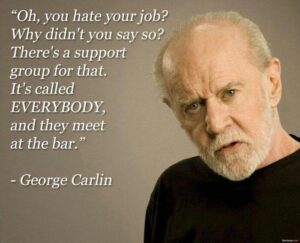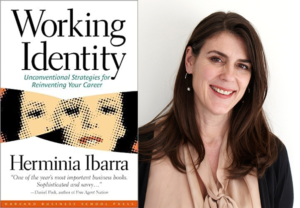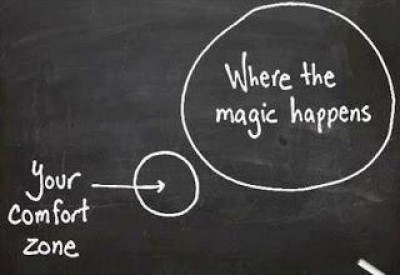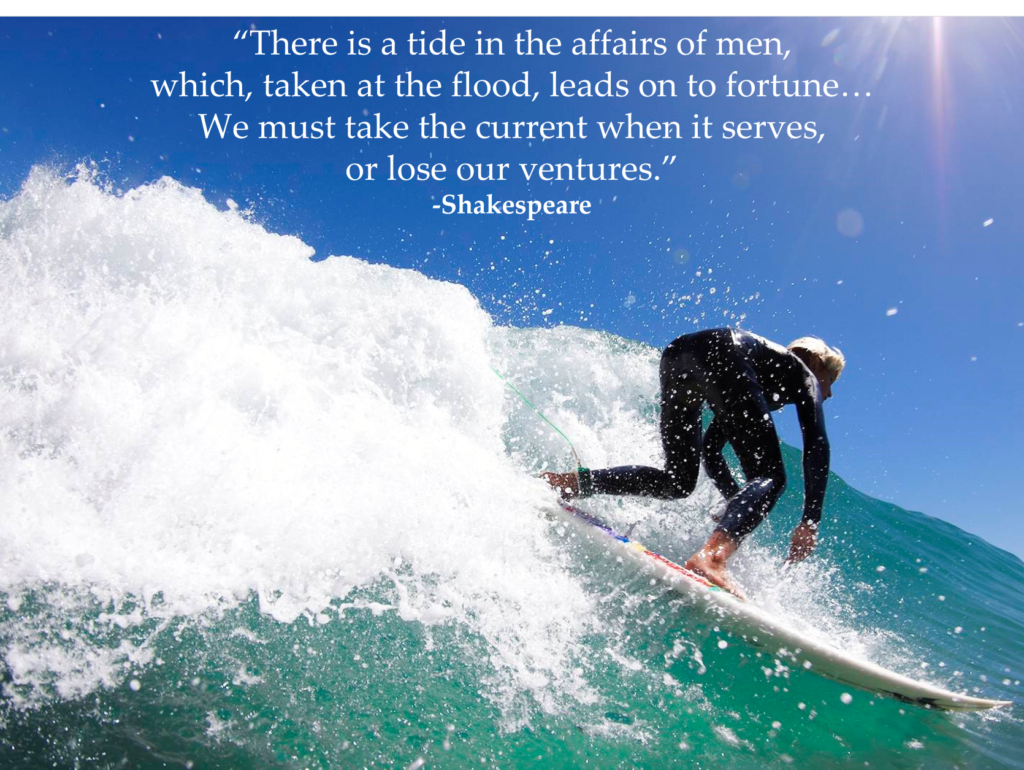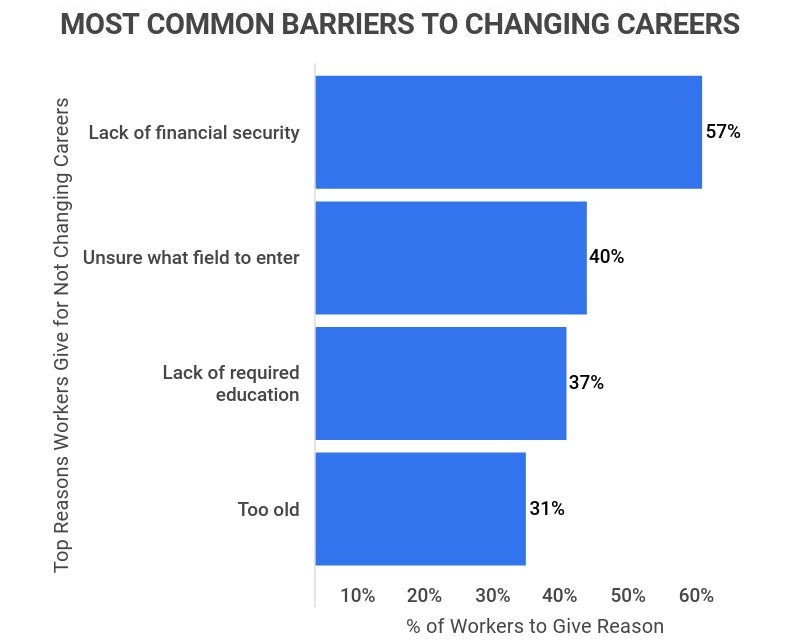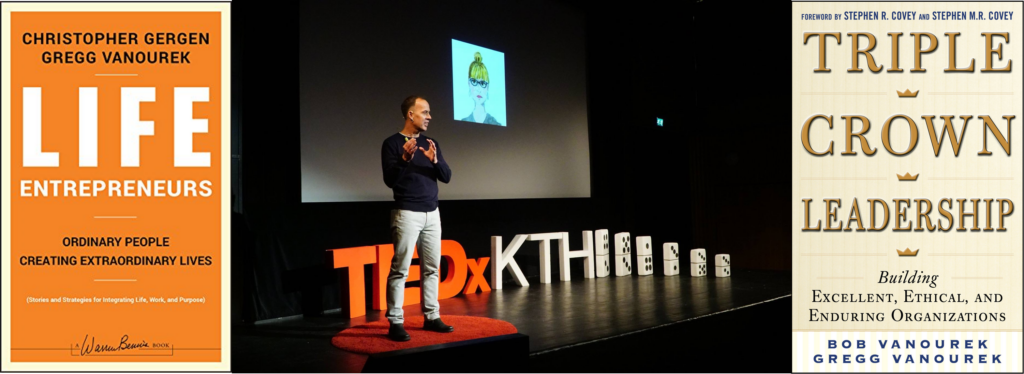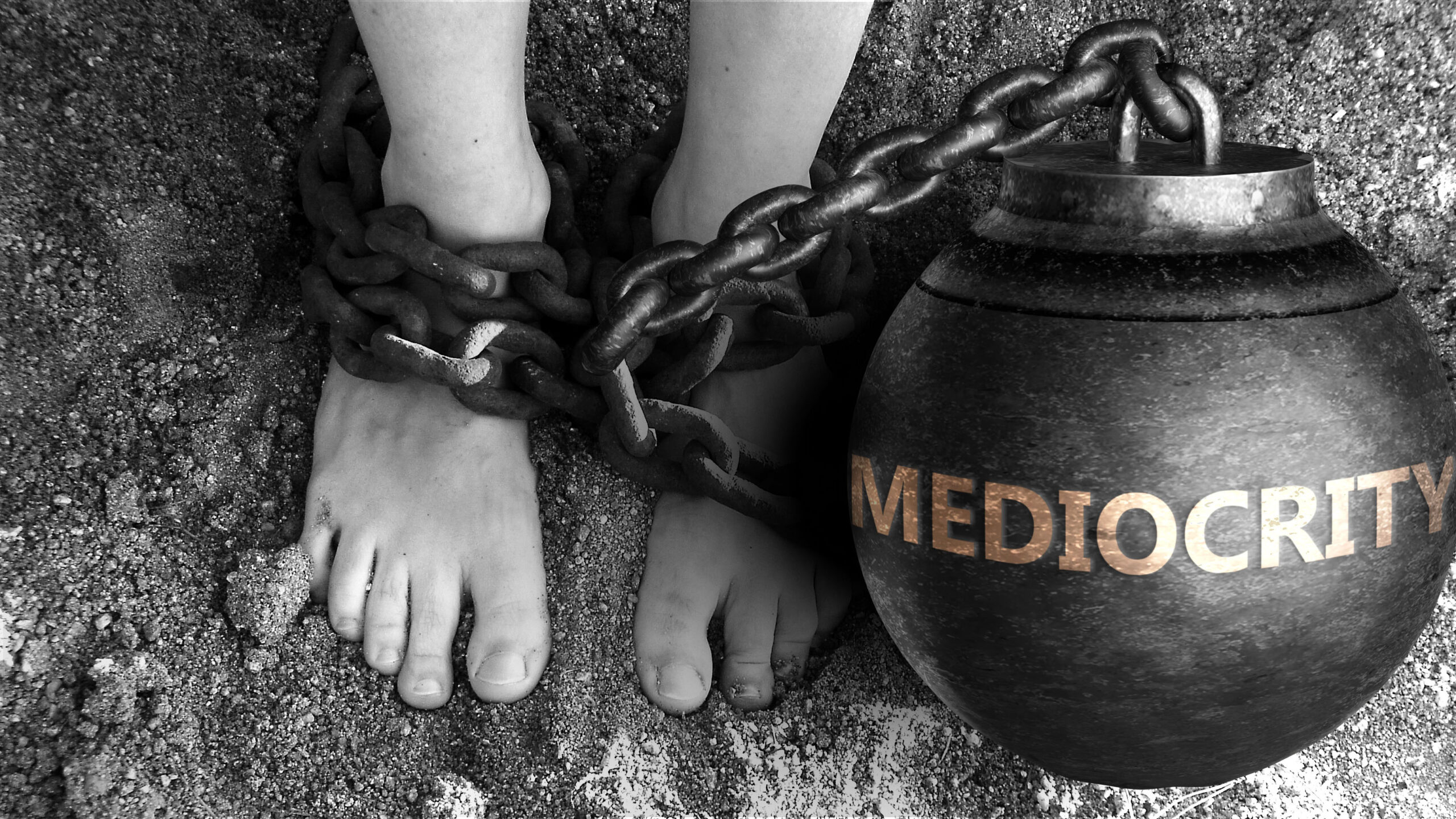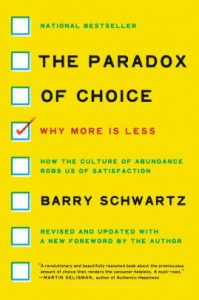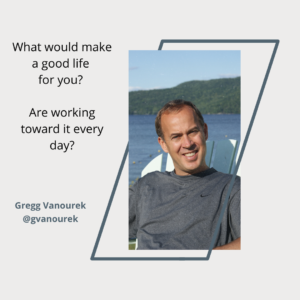The job market today? It’s tough. If you’re a young professional just starting out, or even a few years in, you know the feeling: the landscape is brutal and the competition is fierce.
Consider the following: The unemployment rate for new job market entrants—including recent college graduates and others just beginning their full-time careers—reached a nine-year high this year, according to federal data. Their share of the total unemployed population also climbed to its highest level in decades.
Meanwhile, the once-reliable path from college to career may be breaking down. For the first time in modern history, the bachelor’s degree is failing to deliver on its core promise of access to white-collar jobs, according to researchers at The Burning Glass Institute, a labor-focused research and data lab. Federal data shows that 20- to 24-year-olds with bachelor’s degrees now face the highest relative unemployment levels of any education group.*
U.S. Federal Reserve Chair Jerome Powell has pointed out that we’re in a “low-firing, low-hiring environment,” which makes it tough for young workers (and others) to break into the labor force. The result for many young workers is frustration and self-doubt. One observer has called it “Gen Z’s career apocalypse.”
Landing a great job in this environment can feel like an uphill battle. It’s easy to feel overwhelmed or unsure about how to approach the beginning of your career.
But here’s the good news: there are great opportunities out there if you know how to approach things and differentiate yourself.
Career Tips for Young Professionals
Given this challenging context, here are 12 career tips for young professionals:
1. Know yourself deeply. That means knowing your personal values (what’s most important to you), your strengths (the things at which you most excel), your passions (the things that consume you with palpable emotion over time), and your purpose (why you’re here). This requires time for reflection. Knowing yourself well gives you a strong personal foundation—and safe harbor in the storms. That will help you stay true to your own guiding lights and not get caught up in chasing other people’s definitions of success.
“…the secret of career satisfaction lies in doing what you enjoy most. A few lucky people discover this secret early in life, but most of us are caught in a kind of psychological wrestling match, torn between what we think we can do, what we (or others) feel we ought to do, and what we think we want to do. Our advice? Concentrate instead on who you are, and the rest will fall into place.” -Paul D. Tieger, Barbara Barron, and Kelly Tieger, Do What You Are
2. Focus on learning and growth. When considering job options (if you’re fortunate enough to have them), prioritize opportunities for learning and growth. Find out whether the organization offers valuable learning and development opportunities.
Adopt a “growth mindset” (not a fixed mindset), and look for organizations with a “learn-it-all” culture (not a “know-it-all” culture). Your ability to learn quickly and adapt will serve you well. Be curious, ask questions, and seek feedback (and get good at receiving and acting on it). Develop a consistent habit of lifelong learning.
“…prioritize continuous learning and skill development…. Investing in your ongoing learning not only boosts your current job performance but also positions you for future career opportunities, showcasing your commitment to personal and professional growth and enhancing your adaptability in a dynamic job market.” -Cole Amstutz, Vice President of Commercial Business Development, ServiceMaster by Rice
3. In this age of technology and A.I., double down on human skills. As technology handles more and more routine tasks, your professional value is increasingly tied to uniquely human traits. Things like critical thinking, emotional intelligence (EQ), empathetic communication, and team collaboration. Machines can do a lot, but there’s no substitute for the human factor. Ultimately, strengthening your EQ and problem-solving abilities will help you navigate nuanced client or group interactions, lead teams, and drive innovation.
4. Explore and test your career options. If you haven’t yet found that powerful combination of what you like to do, what you’re good at, and what you can get paid for, you’re wise to remain in what I call “discover mode” and try things. Get exposure to different functional areas. Consider important variables like the size (small, medium, large) and stage (early-, middle-, late-) of the venture that suits you. Be open to career pivots. Very few careers these days are straight lines. Meanwhile, each role you take can teach you something valuable if you have a growth mindset.
“One of the things is putting pressure on having that perfect solution lined up. While we should dream big, sometimes we need to make smaller moves and small experiments to build confidence and gather data and grow more organically in a new direction. In reality, what works is getting anchored in existing strengths and experiences and have a general feeling of success. There is no real way to know the answers… of what to pursue next in our careers unless we’re running small tests and learning from them.” -Jenny Blake, author and podcaster
5. Find a wave and ride it. Venture capitalist Erik Straser wisely urges young workers to find a powerful market trend that will continue for decades and take advantage of it. (Examples: AI, automation, clean tech, smart infrastructure, aging populations, mental health, urbanization, upskilling and reskilling, multigenerational workforces, circular economy, etc.) What are current trends that pique your interest and that you’re well positioned to help advance (or could be)? Remember: you have a choice about which industry and sector you work in.
6. Focus on building “career capital.” In his excellent book, So Good They Can’t Ignore You, Georgetown University computer science professor Cal Newport emphasizes the importance of “career capital” (vocational assets that you can leverage). You build career capital by developing and using rare and valuable skills, not by chasing prestige or convenience, and adding value to your colleagues and organization via smart and hard work. Once you have enough of it, you can trade it for desirable things like autonomy, a flexible schedule, and meaningful work. It gives you freedom and leverage to shape your career and choose work that fits you well and that matters to you.
“(Career capital) is the key currency for the work you love.”
-Cal Newport
Have a high standard of performance and do excellent work consistently. And don’t wait for permission. Take initiative by volunteering for projects, suggesting improvements, and “leading from below.”
7. Look for a great boss. It can make all the difference in your work experience and in the opportunities you get (or don’t get) to contribute and advance. A strong manager provides guidance, challenges you to grow, and opens doors you might never reach on your own. Good leaders help you build skills and set a foundation for long-term success. Often, choosing who you work for is just as important as what you do.
8. Vet the organizations you’re focusing on. Interviews should be a two-way street. Yes, you need to demonstrate your value and give them compelling reasons to hire you. But you should also ask thoughtful, specific questions about their culture, training, and career paths during your interviews. Doing so shows you’ve done your homework and signals that you have high standards for where you invest your time and energy. (See my article, “How to Find a Great Organization to Work For.”)
9. Engage in “discovery-driven networking.” In their book, The Innovator’s DNA, Jeff Dyer, Hal Gregersen, and Clayton Christensen distinguish between two types of networking. “Delivery-driven networking” (the standard type) focuses on accessing resources, selling products, and advancing caeers. It’s transactional and focused on getting what you want. “Discovery-driven networking,” by contrast, focuses on learning new things, obtaining new perspectives, and testing ideas in process. It’s more relational and reciprocal—and effective and enjoyable.
“The currency of real networking is not greed but generosity.”
-Keith Ferrazzi, Never Eat Alone
Your networking should be focused on building real connections, not trying to extract things from people. Seek out people who inspire you and listen deeply to their guidance. Also, make sure that your relationships are reciprocal. Be generous and help others, even when you’re young. If you take time to develop and maintain a strong network, it will be one of the greatest assets in your career.
10. In a crowded job market, find ways to be a “purple cow.” Seth Godin’s “purple cow” is a metaphor for remarkable things that stand out so much they get noticed (like a purple cow in a field of ordinary cows). In a crowded market, being ordinary can make you invisible. Think of a hiring manager with way too much to do and a stack of fifty resumes and a full day of interviews. How can you be the person who stands out from the pack and makes the interview memorable, engaging, and fun?
11. Play the long game. When you’re young, it’s easy to get caught up in immediate concerns like starting pay or benefits. Yes, those are important—but still only pieces of the bigger picture. Focus on opportunities that help you grow, build valuable skills, and work on things that truly matter to you. (It helps to develop a vision of the good life, including clarity about what a good career looks like for you.) And make sure you’re not caught up in your own ego. Never stop asking yourself how you’ll serve and make a difference.
“Be patient, but don’t get complacent. Exercise some patience while putting in the work today that will get you closer to achieving your long-term goals. In a society that wants everything on demand, be willing to sacrifice some short-term gains in order to reach greater success in the long run.” -Nick Blyth, Senior Vice President, Holmes Murphy
12. Don’t neglect the fun factor! Enjoying what you do isn’t just a perk. It fuels your energy, creativity, and resilience. When your work engages and excites you, you’re more likely to grow, perform at your best, and stick with it long enough to build valuable skills and encounter exciting opportunities. A career you love makes your hard work worthwhile and also brings out the best of you in other settings.
Conclusion: Craft a Career You Love
There’s no doubt the job market today is challenging and competitive. It may feel hopeless sometimes. But you have agency.
You’re at the start of a career journey that will likely span several decades. You’ll be spending a huge portion of your life at work. Your career isn’t something that happens to you or something you should settle for or stumble into. It’s something you can choose and craft if you play it smart.
So, take responsibility, be intentional about your choices, and recognize that every move you make today can start setting you up for a better tomorrow. The market may be tough, but with clarity about who you are and what you want—and conviction about building a career you love—you can rise to the challenge.
Wishing you well with it, and let me know if I can help.
–Gregg
Tools for You
- Crafting Your Life & Work online course to help you design your next chapter and create a life and work you love.
- Traps Test (Common Traps of Living) to help you identify what’s getting in the way of your happiness and quality of life.
- Quality of Life Assessment so you can discover your strongest areas and the areas that need work, then act accordingly.
Related Articles & Resources
- “How to Find a Great Organization to Work For”
- “Tips for New Graduates on Life, Work, and Making Big Decisions”
- “The Biggest Mistakes New Graduates Make”
- “The Perils of ‘Climbing Mode’ in Our Career”
- “The Conformity Trap”
- “The Trap of Caring Too Much about What Other People Think”
- “Feeling Behind? It May Be a Trap”
- “The Comparison Trap”
- “Are You Playing the Long Game?”
- Gregg’s TEDx talk on “LIFE Entrepreneurship” (and “climbing mode” vs. “discover mode”)
- Alex Budak, “The Best Books for New Graduates,” Shepherd, Spring 2023
- Alex Harring, “For first-time job hunters, a college degree isn’t unlocking the opportunities it once did, data shows,” CNBC.com, October 3, 2025
- Christopher Gergen and Gregg Vanourek, LIFE Entrepreneurs: Ordinary People Creating Extraordinary Lives
Postscript: Inspirations on Career Tips for Young Professionals
- “One of the best pieces of advice for young people is, Get to yourself quickly. If you know what you want to do, start doing it.” -David Brooks, The Second Mountain
- “The deepest vocational question is not ‘What ought I to do with my life?’ It is the more elemental and demanding ‘Who am I? What is my nature?’” -Parker Palmer, Let Your Life Speak
- “Big career decisions don’t come with a map, but all you need is a compass. In an unpredictable world, you can’t make a master plan. You can only gauge whether you’re on a meaningful path. The right next move is the one that brings you a step closer to living your core values.” -Adam Grant, professor
- “Your work is to discover your work and then with all your heart to give yourself to it.” -Siddhartha Gautama (the Buddha)
- “Don’t obsess over finding your true calling. Instead, master rare and valuable skills. Once you build up the career capital that these skills generate, invest it wisely. Use it to acquire control over what you do and how you do it, and to identify and act on a life-changing mission.” -Cal Newport
- “If the ladder is not leaning against the right wall, every step we take just gets us to the wrong place faster.” -Stephen R. Covey, educator and author
- “Go to work for an organization or people you admire. It will turn you on. You ought to be happy where you are working. I always worry about people who say, ‘I’m going to do this for 10 years’ and ‘I’m going to do 10 more years of this.’ That’s a little like saving sex for your old age. Not a very good idea. Get right into what you enjoy.” -Warren Buffett, investor
- “Your work is going to fill a large part of your life, and the only way to be truly satisfied is to do what you believe is great work. And the only way to do great work is to love what you do.”–Steve Jobs, co-founder, Apple
- “Align where you spend your time with what you care about the most. You’ll connect with like-minded leaders and feel the fulfillment of living out your purpose each day.” -Shannon Draayer, Director of Health and Well-being, WesleyLife
- “Shadow Career is the term used to describe people who go on an alternative path from their true dream because they’ve given up on themselves.” -Dr. Benjamin Hardy, Be Your Future Self Now
- “We spend far too much time at work for it not to have deep meaning.” -Satya Nadella, CEO, Microsoft
- “Don’t aim at success—the more you aim at it and make it a target, the more you are going to miss it. For success, like happiness, cannot be pursued; it must ensue… as the unintended side-effect of one’s personal dedication to a cause greater than oneself.” -Victor Frankl, psychologist, author, and Holocaust survivor
- “…God is calling you to serve Him in and from the ordinary, material, and secular activities of human life. He waits for us every day, in the laboratory, in the operating theatre, in the army barracks, in the university chair, in the factory, in the workshop, in the fields, in the home and in all the immense panorama of work. Understand this well: there is something holy, something divine, hidden in the most ordinary situations, and it is up to each one of you to discover it.” -Josemaria Escriva, Conversations
- “Your career is like a garden. It can hold an assortment of life’s energy that yields a bounty for you. You do not need to grow just one thing in your garden. You do not need to do just one thing in your career.” -Jennifer Ritchie Payette, author
- “Don’t be afraid or guilty to switch directions. You are not a failure for changing your mind on what you choose to do with your life. As someone who ended up finding a different career path, I initially struggled with this, but over time, I have taken comfort in realizing the ability to adapt and change is a skill.” -Dannie Patrick, Community Foundation of Greater Des Moines
- “Networking isn’t just about collecting business cards; it’s about genuinely connecting with people, understanding their needs and finding ways to add value to their lives or businesses. Invest time in cultivating meaningful connections, both within and outside your industry. These relationships can open doors, provide valuable insights and even lead to unexpected opportunities down the road.” -Erin Knupp, Director of Business Development, Beal Derkenne Construction
* The Burning Glass Institute partly attributes the problem to the growing number of young Americans earning four-year degrees, outpacing demand for such workers—a gap unlikely to close soon. Also, the rise of artificial intelligence threatens entry-level knowledge jobs. A recent Stanford study found that U.S. workers ages 22 to 25 in AI-exposed roles have seen a 13% drop in employment since 2022.
+++++++++++++++++
Gregg Vanourek is a writer, teacher, and TEDx speaker on personal development and leadership. He is co-author of three books, including LIFE Entrepreneurs: Ordinary People Creating Extraordinary Lives (a manifesto for living with purpose and passion) and Triple Crown Leadership: Building Excellent, Ethical, and Enduring Organizations (a winner of the International Book Awards). Check out his Crafting Your Life & Work online course or get his monthly newsletter. If you found value in this article, please forward it to a friend. Every little bit helps!











